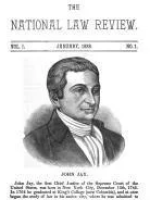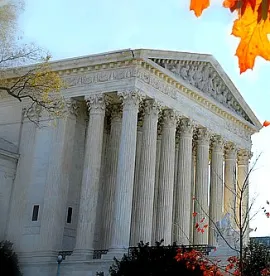On Monday, May 21, 2018 the Supreme Court released their opinion in Epic Systems v. Lewis, a case which ruled on the enforceability of arbitration agreements in the employment context. The majority opinion, authored by Neil Gorsuch, outlines a decision that indicates employers may require employees to enter into arbitration agreements that waive their right to participate in a class action lawsuit, requiring them to go through an arbitration process to settle disputes. The National Law Review was able to sit down with Seyfarth Shaw Partner Noah Finkel, co-chair of the firm's Wage and Hour Litigation practice, who was co-counsel for Epic at the Supreme Court, and get his insight on the opinion handed down in Epic, and why it is a big win for employers.
The Rise of Class Actions
This decision is welcome news for employers. Finkel says, “One statistic is that FLSA collective actions have increased by a factor of 4.5, since 2003.” This increase in class and collective actions are because of a few reasons, however, it's important to remember, as Finkel points out, that the FLSA was written in 1938 and was designed to fit a brick and mortar economy that doesn’t really exist anymore. As our society has moved from a service economy to more of an information technology economy, Finkel says, “there are a whole lot of jobs, job duties and various practices that exist now that didn’t exist in 1938, when the FLSA was written. Trying to apply an old law to a new economy, there is ambiguity, and that lack of clarity leads to litigation.” With employers concerned about increasing class and collective action litigation, the court’s decision in Epic is especially welcome.
Background on Epic Systems v Lewis
The Supreme Court has long ruled that class waivers in arbitration agreements are enforceable, by handing down decisions that upheld arbitration agreements in a commercial context. However, the Obama-Era NLRB cast uncertainty on the enforceability of these agreements by indicating that the class waivers intruded upon employees Section 7 rights under the NLRA--that the class and collective lawsuits were actually concerted, protected activities. The NLRB held this view even as circuit courts refused to enforce their reasoning; specifically the Second, Fifth and Eighth Circuits. The issue became a circuit split when the Seventh Circuit sided with the NLRB in Epic that class or collective actions were a protected concerted activity under the NLRA. The Sixth and Ninth Circuits followed this reasoning, widening the circuit split. The Supreme Court heard oral arguments on three cases, consolidated for review, on these issues on October 2, 2017, and the majority opinion, written by Justice Gorsuch, and the dissenting opinion, written by Ruth Bader Ginsburg, was released on May 21, 2018.
The Decision
The Supreme Court released their decision that Noah Finkel summarizes on the Seyfarth Shaw Wage & Hour Litigation Blog as: “There is no longer any reason under the law why an employer cannot require its employees to waive the ability to bring a class or collective action under federal, state and local employment laws.” The decision handed down by the court has been touted as a huge win for employers, with the threat of expensive class and collective action litigation largely lifted.
The Majority Opinion: Class or Collective Bargaining Not a Section 7 Right under NLRA
The majority opinion, written by Justice Gorsuch, indicates the Federal Arbitration Act is enforceable in the employment context. Mr. Finkel says, “This decision gives employers the ability, through a well-drafted arbitration agreement, to limit potential exposure on class/collective actions from current/former employees.”
Gorsuch writes, “As a matter of policy these questions are surely debatable. But as a matter of law the answer is clear.” He indicates that the Federal Arbitration Act is very clear in its intention to enforce arbitration agreements and that the NLRA was designed to give workers the right to organize, create unions and strike, but Section 7 of the NLRA does not create a right to pursue a collective or class action. Additionally, the majority points out that when the NLRA was written and passed, back in 1935, class or collective action were “hardly known”, and the NLRA states “no rules on class or collective action, in contrast to the regulatory regime it imposes surrounding other concerted activities.”
According to Finkel, the decision went further than many anticipated. He says, “The ruling here was broad, appropriately so. Many were thinking that this was the FAA v NLRA, and who was going to win in the battle of two different interests. Justice Gorsuch’s opinion really says that the NLRA doesn’t provide any right to a class or collective action, and thus, its a question of freedom of contract between employers and employees.”
The Dissent: NLRA Allows Employees to Band Together
Ginsburg, writing for the dissent, clearly took a different approach. Her forceful dissent with Justices Kagan, Sotomayor and Breyer circled around the idea behind the NLRA that workers would be able to band together--in organizing, in striking--to create more of a force with employers. Finkel says, “In the dissent’s view, class and collective actions qualify as concerted activities because in these actions, employees band together to improve their working conditions by holding employers accountable for violations of employment law.” It’s worth mentioning that the court heard oral arguments in October, and just now released their decision, allowing for eight months of deliberation before a decision was released. Finkel says, “ The lag is to be expected, there was significant disagreement among the justices. Their disagreement was fairly profound, and they were going back and forth with each other. That takes time.”
Conclusion
With the increase in class and collective action litigation in the employment sphere, this decision is welcome news to employers. Finkel says, “Employers would prefer to settle these matters on an individual basis, instead of lumping issues together in an expensive class or collective action.” It appears that arbitration agreements will be a viable way forward for many employers for the foreseeable future.




 />i
/>i
